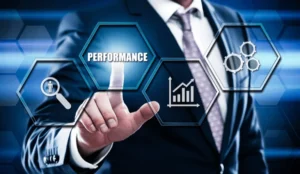In a world marked by rapid technological change, economic unpredictability, and evolving workforce expectations, organisations across sectors grapple with a fundamental question: how do we build resilient leaders who can adapt, lead, and thrive amid complexity?
Leadership today is not just about vision or charisma. It is increasingly about resilience—the capacity to recover from setbacks, adapt to change, and persist in the face of mounting challenges.
Nowhere is this more critical than at the front lines of organisational operations, where line managers are expected to juggle operational delivery, people development, and culture transformation—often with limited support.
This article explores what it truly means to prepare leaders for the future, why resilience is a critical asset, and how organisations can build this capability by investing in a well-designed line managers programme and by deliberately developing managers across all tiers.
Defining Leadership Resilience
Resilient leadership refers to the ability of leaders to maintain their effectiveness, clarity, and purpose under pressure. Resilient leaders are adaptable, emotionally intelligent, optimistic in adversity, and capable of managing ambiguity while inspiring others to do the same.
Key traits of resilient leaders include:
- Self-awareness and emotional regulation
- Agility and adaptability
- Courageous decision-making
- Empathetic communication
- Long-term orientation under short-term pressure
Resilience in leadership is not innate—it can be developed. This is why organisations must invest in structured and sustained approaches to developing managers, especially those closest to the action: line managers.
Understanding the Future Challenges for Managers
The future presents a unique set of challenges for today and tomorrow’s leaders. These include: Digital Transformation and AI Integration
As automation and AI continue to disrupt traditional work models, managers must balance human and machine capabilities, drive digital adoption, and manage the anxieties associated with technological change.
1. Multi-Generational Workforce
Millennials, Gen Z, Gen X, and Boomers now co-exist in the workplace, each with different expectations, communication styles, and motivations. Leading this diverse workforce requires cultural agility and inclusive leadership.
2. Remote and Hybrid Work Structures
Remote work demands a new kind of leadership—one that is trust-based, outcome-driven, and tech-savvy. Managers must foster connection and accountability in physically dispersed teams.
3. Talent Scarcity and Retention Pressures
The war for talent is real. Managers need skills in employee engagement, career coaching, and well-being support to attract and retain top performers.
4. ESG and Social Responsibility
Environmental, Social and Governance (ESG) metrics are becoming a core business priority. Line managers must align team behaviours with ethical, sustainable practices and corporate purpose.
5. Economic and Geopolitical Volatility
Inflation, recession risks, and geopolitical tensions demand leaders who can remain composed, take calculated risks, and pivot in real-time.
These realities demand a new leadership DNA—one that can be built through structured line managers programme initiatives and intentional efforts in developing managers to be fit for the future.
The Evolving Role of Line Managers
Gone are the days when line managers were merely technical supervisors. Today, they are:
- Culture shapers
- Change agents
- Talent developers
- Strategic executors
They sit at the critical intersection of strategy and execution. This makes the case for a deliberate line managers’ programme not just a training exercise but a strategic imperative.
Investing in developing managers is not just good practice—it makes strong business sense.
Consider these statistics:
- Companies that invest in manager development see 25% higher productivity (McKinsey, 2022).
- A Gallup study found that 70% of the variance in employee engagement is attributed to the quality of the manager.
- Poor management is estimated to cost the global economy over $7 trillion annually.
In contrast, companies that invest in a comprehensive line managers programme experience:
- Improved team morale and retention
- Faster execution of strategy
- Higher resilience in times of crisis
- Greater alignment between corporate vision and operational execution
Organisations cannot afford to ignore the foundational value of developing managers.
Building Blocks of a Resilient Leadership Pipeline
To build resilience, a line managers programme must go beyond generic training. It must incorporate the following competencies and capabilities:
1. Emotional Intelligence
Managers need to recognise, understand, and manage their own emotions and those of others. This is critical in navigating conflict, building trust, and maintaining team cohesion.
2. Adaptability and Learning Agility
The ability to learn, unlearn, and relearn in real time is a critical trait in a fast-changing world.
3. Decision-Making Under Uncertainty
Resilient managers need frameworks for making confident decisions even with incomplete information.
4. Coaching and People Development
A key shift in developing managers is equipping them to be performance coaches, not just task allocators.
5. Purpose-Driven Leadership
Embedding meaning and values into everyday leadership builds long-term motivation and authenticity.
Designing an Effective Line Managers Programme
An effective line managers programme must be designed with care, intentionality, and alignment to business needs. The following elements are essential:
1. Needs-Based Curriculum
Use diagnostics and capability assessments to identify specific skill gaps and resilience needs per business unit or region.
2. Blended Learning Approaches
Combine classroom sessions, simulations, peer learning, mentoring, and digital content for engagement and retention.
3. Real-World Case Simulations
Use business scenarios to test resilience, decision-making, and values alignment under pressure.
4. Reflection and Feedback Loops
Encourage self-awareness through journaling, peer feedback, and coaching support.
5. Personalised Development Journeys
Every manager has a unique development curve. Allow customisation in the line managers programme pathway.
Integrating Digital Tools for Scale and Sustainability
Digital innovation has transformed how we can scale leadership development. Organisations should integrate:
- Learning Management Systems (LMS) for structured content access.
- AI-Powered Platforms that track engagement, personalise learning, and predict development needs.
The use of technology is key in sustaining momentum in developing managers across geographies and business lines.
Organisational Enablers and Culture
No line managers programme will thrive without an enabling environment. Culture is critical Organisations must:
- Secure Senior Leadership Buy-In : Leaders must model the behaviours they expect.
- Redesign Systems for Learning: Performance management, succession planning, and rewards should align with leadership development goals.
- Promote Psychological Safety: Resilience grows where people feel safe to fail, learn, and speak up.
Recommendations and Strategic Next Steps
For organisations seeking to future-proof leadership through resilience, the following steps are key:
1. Audit Your Leadership Capabilities
Use tools and surveys to assess where your managers are on the resilience scale.
2. Design a Strategic Line Managers Programme
Don’t just tick boxes. Build a programme tailored to your organisation’s strategy and leadership philosophy.
3. Invest in Coaching and Mentoring
These high-touch approaches are critical in reinforcing learning and providing safe spaces for reflection.
4. Embed Development into Business Processes
Tie manager development into performance reviews, KPIs, promotions, and strategic planning.
5. Track and Measure Impact
Use dashboards, 360 feedback, and talent analytics to monitor the ROI of your line managers programme.
The Time to Act Is Now
In the face of unprecedented complexity and volatility, organisations must act boldly. Building a leadership pipeline that is resilient, agile, and ethically grounded is no longer a luxury—it is an existential necessity.
This begins with deliberately developing managers and creating robust line managers programme structures that go beyond generic skills training to instill emotional stamina, strategic clarity, and human-centred leadership.
The organisations that will lead the future are not those with the smartest strategy, but those with the strongest leaders—resilient, adaptive, and ready to face the unknown.
Are you preparing your managers to be those leaders? Start empowering your managers today—contact us at hello@workforcegroup.com to learn how we can help you build a leadership pipeline that drives success in any environment. Let’s shape the future of your organisation, together.



